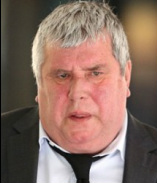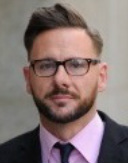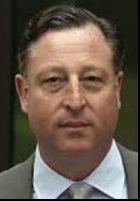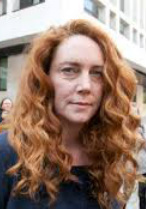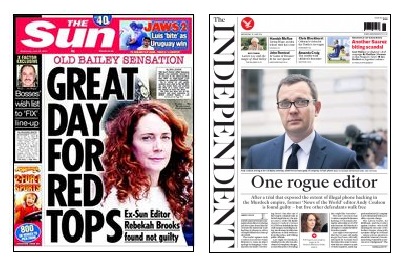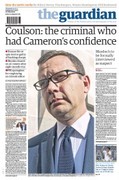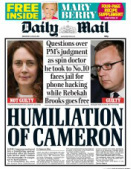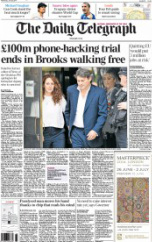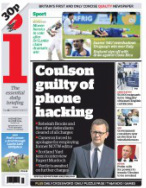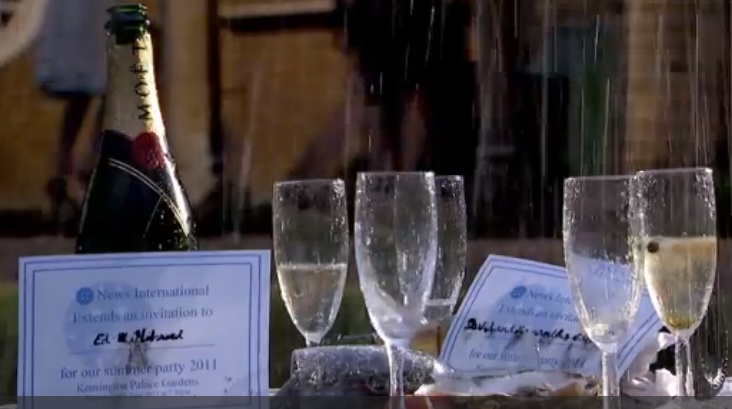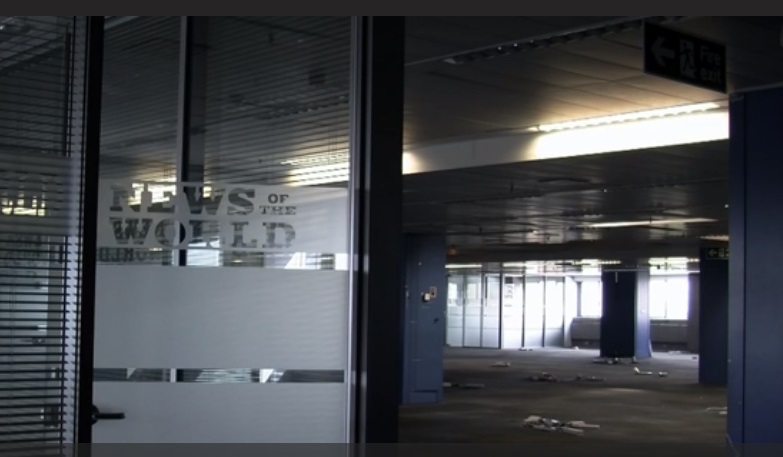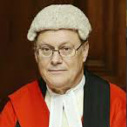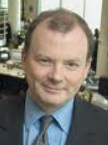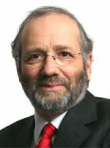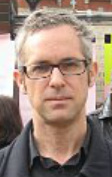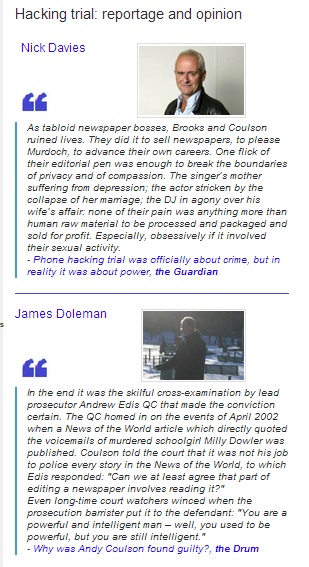The hacking trial
|
Phone hacking was widespread in Fleet Street and endemic at the News of the World, a corporate policy that news editors were required to follow, Mr Justice Saunders was told at the Old Bailey today.
Barristers representing three journalists who have pleaded guilty in the hacking trial said that Andy Coulson and Stuart Kuttner - who was cleared last week - directed and controlled investigations that involved the private investigator Glenn Mulcaire listening in to voicemails. Mulcaire's barrister said he had believed the Dowler hacking to be part of an operation to help police, an idea described as ridiculous by other lawyers. Coulson's barrister will put forward his argument in mitigation, calling one witness, tomorrow. Prosecution in tweets Mitigation speeches |
Coulson and Goodman to be retried on unresolved charge of conspiracy to commit misconduct in public office

The police investigations did get out of hand; they were out of proportion with the suspected crimes; the costs were astronomical...But none of this money would have been spent if Coulson hadn't encouraged a culture of hacking and then lied through his teeth for five years, clinging to the myth that Clive Goodman was "one rogue reporter" - the SubScribe commentary
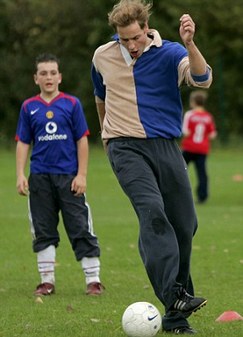
The diary note about Prince William hurting his knee in a knockabout game of football with youngsters at Charlton Athletic was lightweight stuff, but how did Clive Goodman get the story? Clarence House wasn't happy and contacted the police. No one else seemed much bothered, even when Goodman and Glenn Mulcaire admitted listening to the prince's voicemail. Apart from the Guardian. The story set the paper and reporter Nick Davies on a trail that led to the Old Bailey. Here's the first bit of the story: from William's knee to Milly's inbox
The Channel 4 interview
“I am appalled by the phone interception, phone voicemail interception, that went on unknownst to me at the News of the World. I told the police I was appalled by it. The Panorama special
I consider what has happened as unsatisfactory so far as justice and the rule of law are concerned...when politicians regard it as open season, one cannot expect the Press to remain silent
|
|
Commentators

Press barons and politicians will always seek the mutual advantage of each others' patronage – and have for a hundred years or more. But the phone hacking trial and Leveson inquiry have revealed that the embrace became too intimate. Although for the moment, both sides are wary of being seen to return to the old ways, it seems inevitable they will.
- Richard Sambrook, The Conversation 
The entire Leveson process was designed to provide the wrong answer to the wrong question. The hacking scandal wasn't primarily a failure of press regulation - it was, above all, a dismal failure of policing.
The police knew what the News of the World was doing, and turned a blind eye. It's hard not to conclude that the reason is that too many of them were far too close to the Murdoch papers...It cannot be said too often: it was journalists, specifically on The Guardian and the New York Times, who blew this thing wide open, not the police, not the judiciary, not our elected representatives at Westminster - Robin Lustig, Lustig's Letter 
We have a political system which remains in thrall to the power of large news organisations to set the pace on issues of the day – on immigration, our attitude towards the EU, on the need for austerity. Even Ed Miliband, one of the few figures initially to stand up to Rupert Murdoch’s baneful political influence on politics, took the decision last week that it was still worth posing with a copy of the Sun given the forthcoming general election
- Des Freedman, Media Reform Coalition |
Please sign up for SubScribe updates
(no spam, no more than one every week or two)
|
|
|

